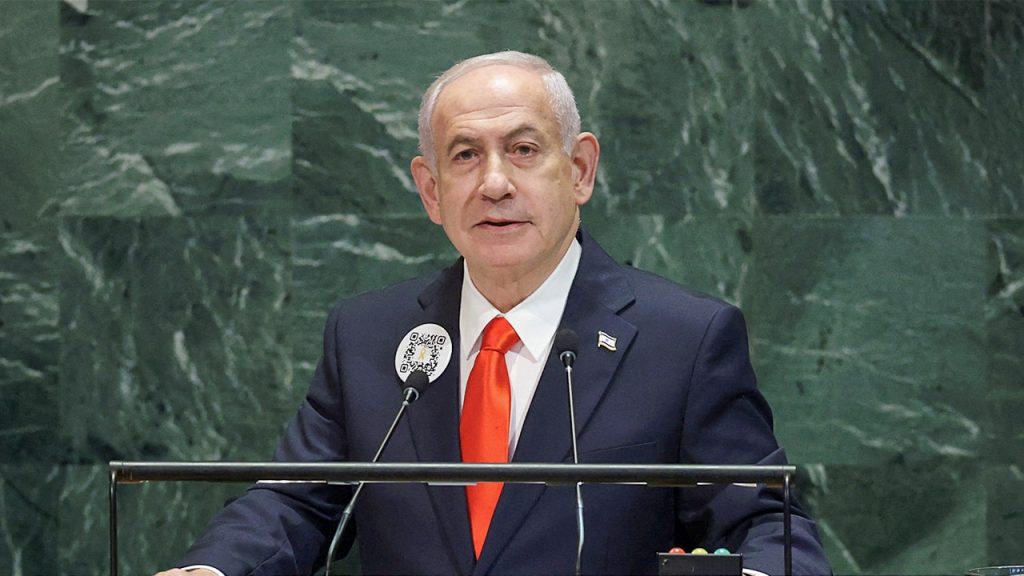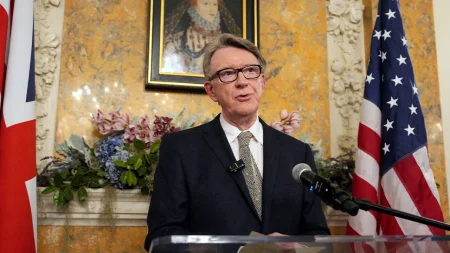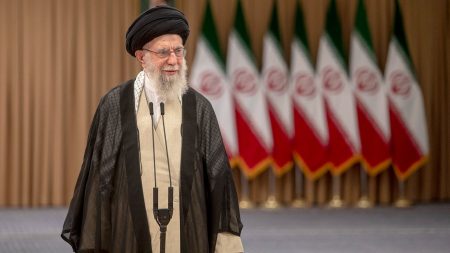Netanyahu Extends Olive Branch While Supporting Trump’s Gaza Peace Plan
In a significant diplomatic move, Israeli Prime Minister Benjamin Netanyahu has reached out to neighboring nations, inviting them to join Israel in its efforts to remove Hamas from the region. This invitation comes at a critical juncture following the United Nations Security Council’s endorsement of President Donald Trump’s peace plan for Gaza, which aims to end the devastating two-year conflict that has transformed the territory into what UN Ambassador Waltz described as “a hell on earth.” The peace plan, which passed with a strong 14-0 vote (with just two abstentions), proposes ending the war and deploying an international stabilization force to maintain peace. Netanyahu’s gesture represents a potential turning point in regional relations, as Israel seeks to build a coalition against extremism while simultaneously pursuing diplomatic normalization with its neighbors.
Netanyahu’s office expressed strong support for the UN-backed peace plan, noting that it addresses Israel’s core security concerns through its insistence on “full demilitarization, disarmament and the deradicalization of Gaza.” This approach aligns with Israel’s long-standing position that any sustainable peace must include robust security guarantees to prevent future attacks. Alongside this security focus, Israel has also maintained its humanitarian concern for hostages still being held, specifically calling for the release of the remains of Ron Gvili, Dror Or, and Sudthisak Rinthalak. This dual emphasis on security and humanitarian concerns reflects Israel’s complex position – firmly committed to eliminating threats while also sensitive to the human cost of the conflict that has raged for two years, devastating communities on both sides of the border.
The UN Security Council’s endorsement represents a significant diplomatic achievement for the Trump administration and potentially marks a new chapter in the region’s troubled history. When presenting the plan to the council, Ambassador Waltz framed the vote in stark moral terms, stating, “Voting yes today isn’t just endorsing a plan. It’s affirming our shared humanity. A vote against this resolution is a vote to return to war.” This framing successfully resonated with council members, resulting in the strong endorsement despite the complexity of Middle Eastern politics that typically divides international opinion. The plan aims to transform Gaza from a territory marked by “rubble where schools once stood” into a region with a viable “path to peace” – a vision that garnered broad international support despite traditional divisions on the Israeli-Palestinian conflict.
Netanyahu’s government has expressed particular enthusiasm for how the plan might advance broader regional cooperation through the Abraham Accords – the historic normalization agreements between Israel and several Arab nations that were brokered during Trump’s first administration. The United Arab Emirates, Bahrain, Sudan, and Morocco have already normalized relations with Israel under this framework, but Netanyahu clearly sees this latest peace initiative as an opportunity to expand this circle of recognition and cooperation. His office specifically praised “President Trump’s breakthrough leadership” that they believe “will help lead the region to peace and prosperity and a lasting alliance with the United States.” This statement reflects Israel’s strategic view that regional integration offers the best path forward for long-term stability and development in the Middle East.
The timing of this diplomatic initiative coincides with senior Trump administration officials expressing optimism about expanding the Abraham Accords as the Gaza conflict winds down. An unnamed senior official recently told reporters that “there’s a lot of positive momentum that will pick up,” suggesting that the end of hostilities could create “the opportunity to expand the Abraham Accords – to really just change the tone in the region.” This perspective aligns with the Trump administration’s broader Middle East strategy, which has prioritized building direct relationships between Israel and Arab states, sometimes working outside traditional peace process frameworks that centered on resolving the Israeli-Palestinian conflict as a prerequisite for normalization.
Despite the optimistic diplomatic language, significant challenges remain in implementing any peace plan in Gaza. The territory has experienced catastrophic destruction during two years of conflict, and rebuilding both physical infrastructure and social trust will require substantial international commitment and resources. Additionally, while the peace plan has received formal endorsement at the UN, its successful implementation will depend on the cooperation of all parties involved, including Palestinian factions, regional powers, and the international community. Netanyahu’s call for neighboring nations to join in expelling Hamas reflects Israel’s view that regional cooperation against extremism is essential, but this approach will need to be balanced with rebuilding efforts and addressing humanitarian concerns if the vision of “peace and prosperity” that Netanyahu describes is to become reality in a region that has known too much suffering.













